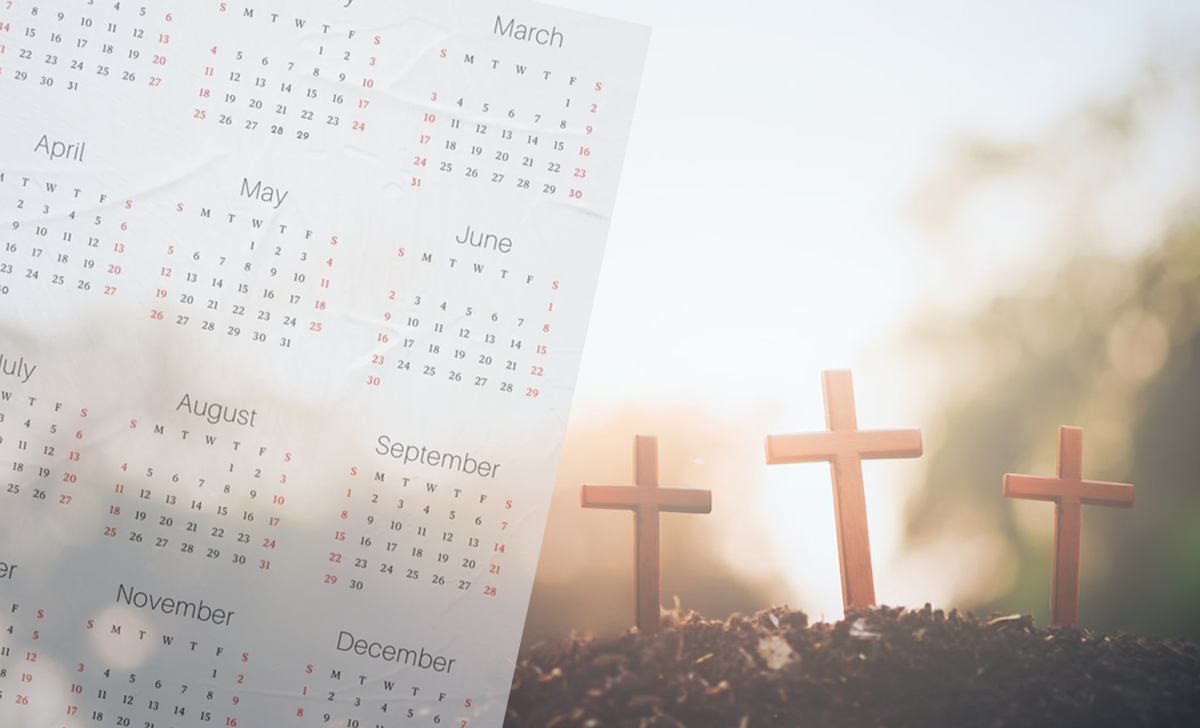
Growing up in a formal and liturgical church, I knew we had many terms and practices which were peculiar to churches like ours. I was dimly aware we had traditions in common with other denominations (Anglican, Methodist, Lutheran, and Catholic) that were absent from the Baptist and non-denominational churches I visited. Other Christians celebrated Easter and Christmas, but many didn't recognize Advent, Epiphany, Lent, or the season after Trinity Sunday (Kingdomtide). They also didn't use a “lectionary,” wear robes, or have distinctive names for the parts of the building. I myself didn't know what many of the terms meant - at least not exactly. I knew the “narthex” was somewhere near the entrance but couldn't have told you anything about the “nave.” I was decidedly incurious.
After coming to living faith in Christ and then leaving the Catholic church, my religious vocabulary simplified. Gone were most of the building-related terms, all the names for vestments (religious clothing), and every church festival and yearly observance except for Christmas (one Sunday) and Easter (two Sundays, counting Palm Sunday). I didn't much think about it, but I'm sure there was some undercurrent of an idea that if it wasn't found explicitly in Scripture then there wasn't much purpose in it. After the Resurrection, there is nothing commanded explicitly in Scripture about celebrating a calendar, so we didn't do so except for the two big ones (which it seemed a little extreme to get rid of even though I heard that the Puritans did).
As with many things, I discovered there was a great deal more depth to this issue than I had considered. The Puritans, for instance, didn't condemn Christmas in a fit of fun-destroying fanaticism. They were reacting to a calendar overwhelmed with saint's days and complicated observances that seemed both questionable and distracting from the preaching of the gospel. They were also dealing with a Christmas that had been taken over by violent mobs of drunken youth and general debauchery. Christmas was a time to stay inside and lock the doors. The Christmas all of us know was largely created by Charles Dickens and the Germans.
While the Puritans, or at least the strictest of them, could shut down the calendar when they controlled the culture, the reality is humans are inherently time-keeping and time-marking creatures. We create calendars to live by, whether they honor pagan harvest gods or Hallmark. All cultures live by calendars. It is simply a question of which calendars we live by.
While the Bible doesn't give Christians a calendar to live by, it certainly condemns requiring the Jewish calendar as an obligation or exercise in Law-keeping. However, it does give an example of a calendar which was focused on remembering God's saving works and looking forward to promised redemption. Much of the calendar was tied to the Exodus and God's salvation of His chosen people. Passover remembered the lamb's blood and death of the first born. Pentecost remembered the giving of the Law. Tabernacles remembered the wilderness wandering. There is a biblical principle of marking time by remembering God's saving works.
Keeping time in this way also testifies to the reality that God Himself, who dwells in eternity (Isaiah 57.15) and who knows the end from the beginning, is Creator and Ruler of time itself. He is the Potentate of Time as we sing in the great hymn, “Crown Him with Many Crowns.” He owns and rules time; the controlling purpose of which is the first and second comings of Jesus Christ.
Without the distracting and sometimes idolatrous excesses of our “Rome” we can observe a church calendar to sacralize our time and live in a rhythm that remembers Christ's saving works. We remind ourselves and each other that God owns even time itself, and all of time serves His purposes and plans. We don't look at the year as something demanded in detail by the New Testament, but “there are some circumstances concerning the worship of God, and government of the Church, common to human actions and societies, which are to be ordered by the light of nature, and Christian prudence, according to the general rules of the Word,” (Westminster Confession of Faith, I.6). The calendar is one of those circumstances.
The church calendar also gives us opportunities for gentle push-back against worldliness in our culture. As spring arrives with great celebration and a bit of cavorting, we reflect during Lent on the reasons why we need Christ's death on the cross to save us. While the world of American commerce loves Advent's shopping rush, it actually is deeply disinterested in Christmas (a festival of twelve days which begins on December 25 and ends on January 6 with the Feast of Epiphany). Christmas is a time to joyously remember that even though many in Israel had given up hope of a Messiah, God kept His promises - all of them! Because of that we have hope.







